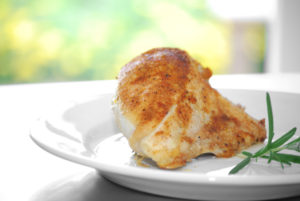by Serena Poon, special to SportsMD.com

I think a lot of people believe that you need a lot of protein and complex supplements to properly recover from a workout. What if I told you that the best approach to workout recovery is from a holistic perspective, with a focus on whole foods and plant-based options?
There are three main considerations when discussing nutrition for fitness recovery: replenishing glycogen stores, rebuilding muscle fibers and hydration.
Replenishing Glycogen
First, let’s discuss glycogen. Energy for our workouts (and brain activity!) comes from the glycogen stores in our liver and our muscles. Our glycogen stores will generally last for up to a 90 minute workout, which should capture most workouts, unless you are training for an endurance event. Glycogen is fueled by carbohydrates. Carbohydrates are not the bad guy, especially when it comes to fitness. Eating high quality carbohydrates within 30 minutes after you exercise will help you to start replenishing your glycogen stores right away.
 Your body will need carbohydrates throughout the day as glycogen takes time to replenish, meaning your workout fuel is usually coming from the carbohydrate consumption from the day before. If you are an endurance athlete and regularly exercise for more than 90 minutes at a time, it is advised to eat a high carbohydrate diet. Endurance athletes should also incorporate full rest days to allow for proper glycogen replenishment. Some examples of whole-foods-based carbohydrates that are great for workout recovery are: bananas, apples, quinoa, beans (unless you have a hard time digesting beans), and sweet potatoes.
Your body will need carbohydrates throughout the day as glycogen takes time to replenish, meaning your workout fuel is usually coming from the carbohydrate consumption from the day before. If you are an endurance athlete and regularly exercise for more than 90 minutes at a time, it is advised to eat a high carbohydrate diet. Endurance athletes should also incorporate full rest days to allow for proper glycogen replenishment. Some examples of whole-foods-based carbohydrates that are great for workout recovery are: bananas, apples, quinoa, beans (unless you have a hard time digesting beans), and sweet potatoes.
Rebuilding Muscle Fibers

Another component of sports nutrition is the repair of muscle fibers. Muscles are built and toned through a process of tearing and rebuilding. Rest and nutrient replenishment are incredibly important in this process. There is a lot of importance placed on protein, but it’s really recommended to eat a blend of high-quality carbohydrates and proteins post workout. There is also a lot of discussion around complete proteins and making sure to get the nine amino acids. If you eat a diet that is rich in whole, plant-based foods, you shouldn’t have to worry about this too much. One exception is BCAA, or Block Chain Amino Acids. There has been research that shows that consumption of BCAA can increase muscle protein synthesis and decrease muscle soreness. BCAAs are usually found in animal foods, so you will need to seek out a high-quality supplement option for the plant-based version. Some examples of plant-based proteins that you can add into your recovery mix include: nuts, seeds and beans.
Hydration

Hydration is absolutely crucial for proper workout nutrition. Make sure to drink enough water after your workout to replenish any water lost through sweating. If your workout was more than 90 minutes, consider adding electrolytes into your hydration regimen. Electrolytes can be replenished through salty foods, like miso soup and food containing potassium like bananas, grapefruits, leafy greens and sweet potatoes.
Protein Shakes and Bars

A lot of people turn to protein shakes and bars for post-workout recovery. If you don’t have the time to cook a meal or are on-the-go, these can be great, convenient options. I actually created Just Add Water™, a nutrient-dense superfood supplement, with these moments in mind. It is really important that you research products well to make sure they don’t contain a lot of processed sugar, fillers and that their nutrients are sourced responsibly.
Try not to overthink nutrition for fitness recovery, this can just cause stress, which in some ways would negate your recovery. Instead simply focus on eating high-quality, whole foods that contain a blend of micronutrients. Along with proper hydration and rest periods, you should be getting everything you need for effective recovery.
Celebrity Chef, Nutritionist and Reiki Master, Serena Poon has made it her mission to promote further education around the mindful combination of food, nutrition and healing intuition in what she has coined, “Culinary Alchemy™.”

